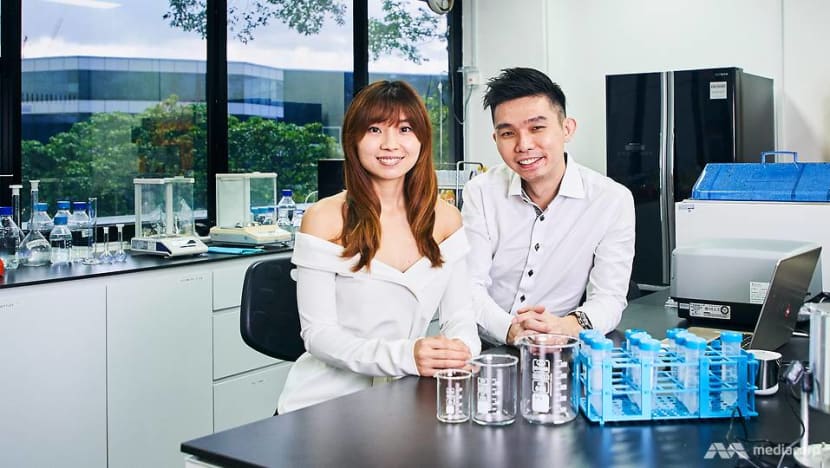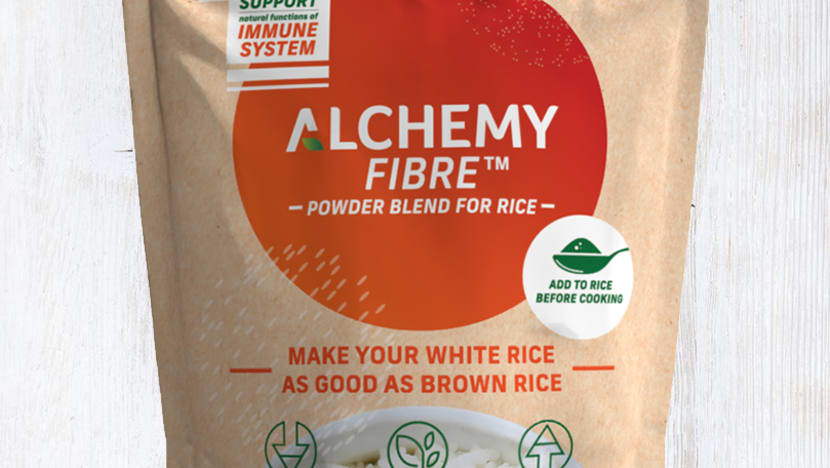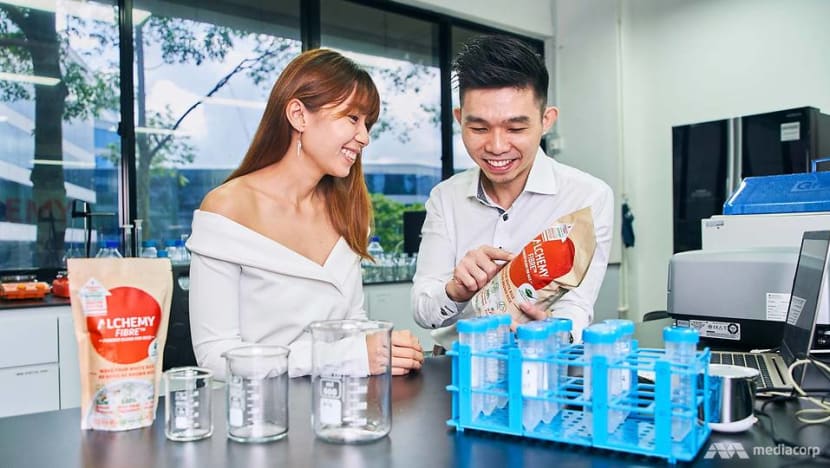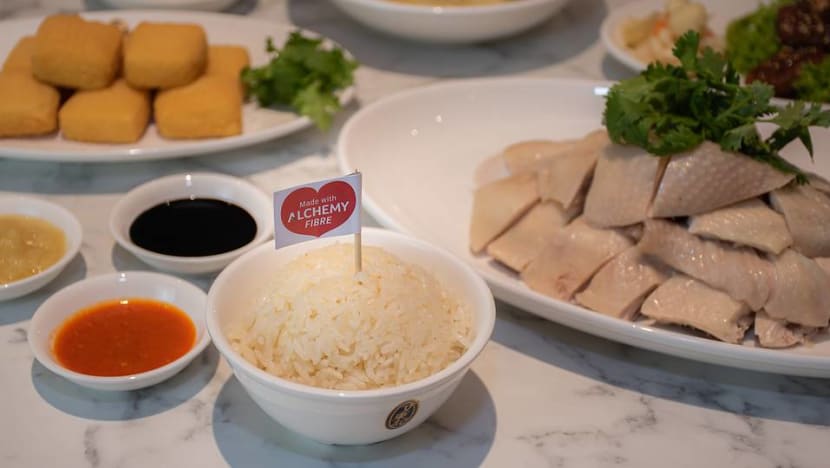The Singaporeans making rice and noodles healthier, but just as delicious
Alchemy Foodtech’s Alan Phua and Verleen Goh have come up with a patented ingredient that lowers the glycaemic index (GI) of refined carbohydrates such as rice, bread and noodles, while raising their overall fibre content.

Alchemy Foodtech’s Verleen Goh and Alan Phua. (Photo: Alvin Teo)
Imagine being able to indulge in char kway teow, spaghetti carbonara and milk loaves without worrying so much about its effect on blood glucose levels. In a world where 422 million people have diabetes – with Singapore expected to have one million diabetics by 2050 – that is sweet news indeed.
A history of diabetes in Alan Phua’s family led him and Verleen Goh to start Alchemy Foodtech in 2015 with the mission to make carb-laden foods healthier without compromising on taste and texture. After all, few would enthusiastically take to sushi and chicken rice made from brown rice or mee goreng cooked with wholegrain noodles.
Said Phua, who is the CEO (or Chief Everything Officer, as he likes to call it): “Taste and texture is always the number one concern, and staples like white rice and noodles are part of so many cultures in Asia. So when we were developing solutions, we made sure it could help people eat their favourite foods without the health problems.”

READ> Paradise Teochew launches 'innovative' dim sum menu for a limited time
The husband-and-wife pair came up with Alchemy Fibre, a patented ingredient that is gluten-free and made from plant crops such as corn, pea, and tapioca, to lower the glycaemic index (GI) of refined carbohydrates such as rice, bread and noodles, while raising their overall fibre content.
A food’s GI indicates how quickly and how much it raises blood glucose after eating. This is affected by factors such as portion sizes, cooking time, whether it is eaten on its own or with other foods, and whether it has been processed or not.
In general, low- and medium-GI foods such as brown rice, whole fruits and leafy vegetables are digested and absorbed more slowly, leading to slower spikes in blood sugar levels. High-GI food such as white rice, white bread and pasta, are quickly digested in the body to give rise to glucose, which then circulates in the bloodstream.

READ> Why these Singaporeans are making gin from typhoon-damaged rice crops
“If the body is not able to get rid of glucose fast enough, the bloodstream will become thicker. It’s like adding sugar to water to give a syrupy consistency,” explained Goh, who is a food scientist by training and goes by the designation of Chief Food Fighter.
“Blood flow will be slower and you can get clots, which may lead to a stroke. Alchemy Fibre reduces the digestion rate of glucose in white rice to almost that of brown rice, yet is just as tasty.”
Initially, the plan for Alchemy was a purely B2B2C model where they partner restaurants and food companies as an ingredient supplier. When COVID-19 forced restaurants to be closed, and more people started preparing their own meals at home, the Alchemy team hunkered down to create complementary consumer-friendly products that could be easily used for healthier home-cooked meals.

“We did a survey on how rice consumption had changed pre-COVID and during the circuit breaker,” Goh shared. “The results showed that the consumption rate of rice has increased by two to three times, and people were paying more attention to healthy eating.”
This month, F&B outlets such as Boon Tong Kee, Yu Kee Duck Rice and Bangkok Jam will serve rice with Alchemy Fibre on their menus. Next on the cards are collaborative premixes with restaurants, such as green curry cookies. “In such challenging economic times, these premixes can also become a new revenue stream for them,” said Phua.
In the following months, Alchemy is also launching new baking premixes for cookies, cakes and brownies, and ingredient blends that include Alchemy Fibre, such as flour packs and a powder with added prebiotics that can be added to rice for higher fibre content and improved gut health and immunity.

READ> Dram come true: Singapore’s first single malt whisky is now in production
Both foodies at heart, Goh and Phua were retailing low-calorie, low-fat vegan ice cream for four years before they sold the business and started Alchemy. “Food can make a difference, especially since it’s something you need everyday. As people live longer, diet will play an important role. It’s not just how much you age, but also how well you do,” Phua said.
To date, Alchemy has raised a total of S$3.5 million in funding, including S$2.5 million in a pre-Series A round and S$200,000 from winning the Slingshot@Switch 2018 start-up competition organised by Startup SG and Enterprise Singapore.

It is already working with food manufacturers such as bakery Gardenia, steamed bun maker Lim Kee Food Manufacturing and Kang Kang noodles producer Tan Seng Kee Foods to create healthier versions of their products.
Phua said: “Alchemy is about health and sustainability, with the goal of reducing the incidence of chronic diseases. We believe that you are what you eat, so if we can improve on your diet, we can improve on your health.”















